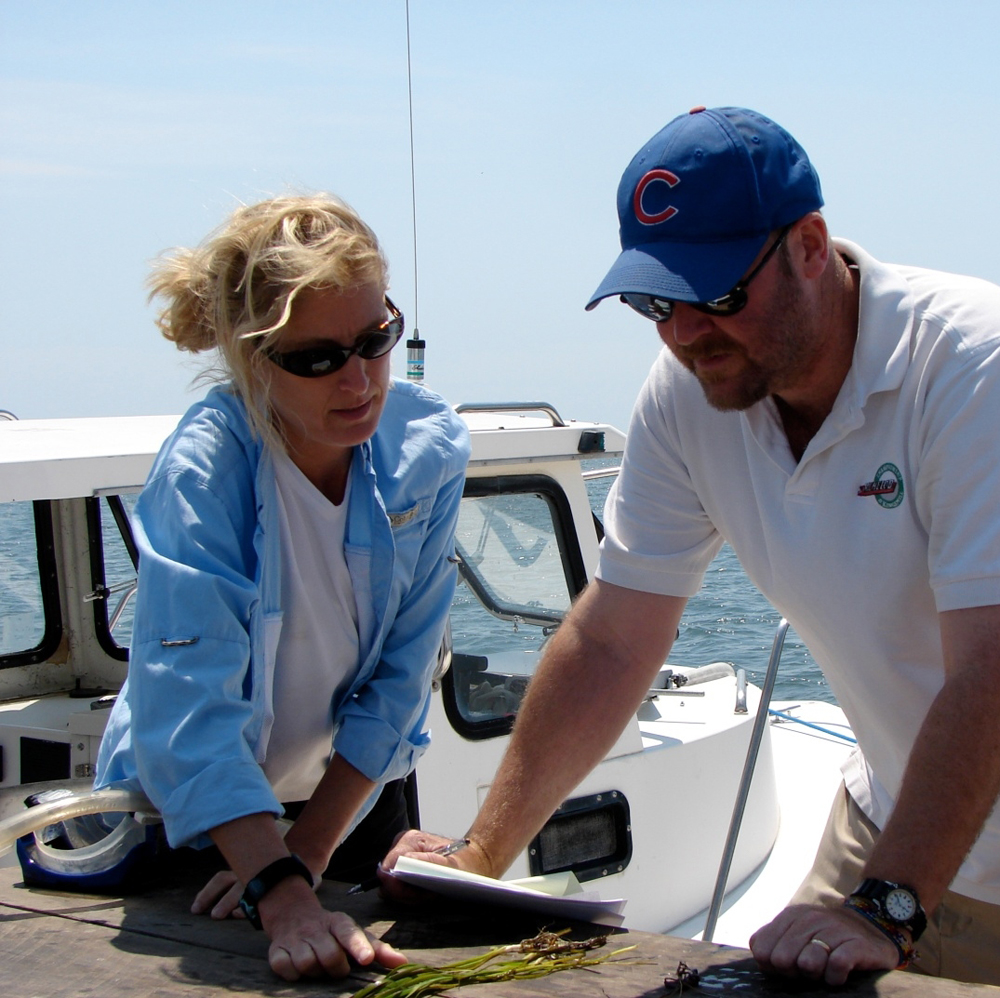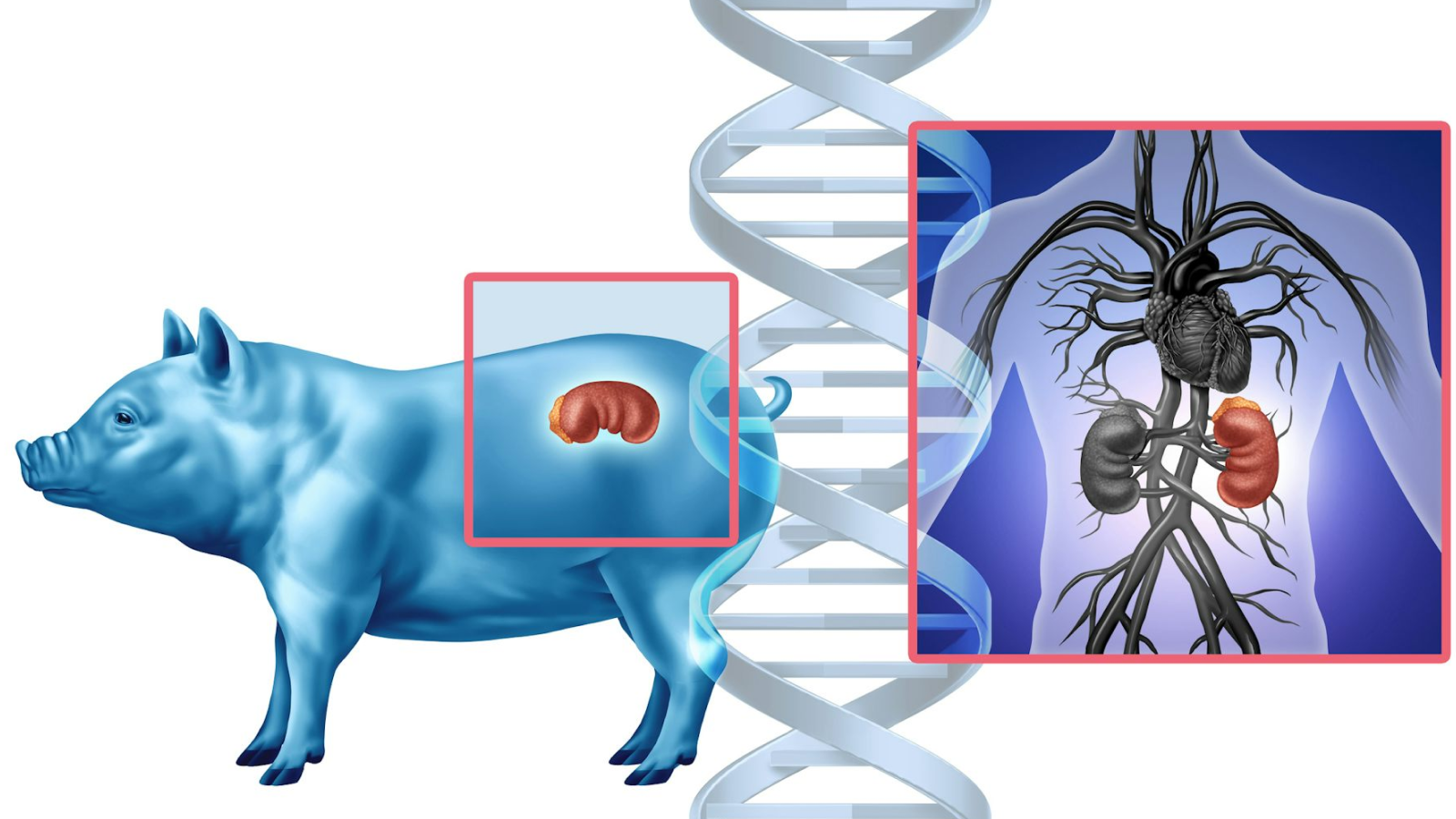Marine Ecologist Leads Coastal Investigation, Collaboration on Climate Change

This ScienceLives article was provided to LiveScience in partnership with the National Science Foundation.
A pristine coastline is hard to find. But on the Atlantic coast of Virginia’s Eastern Shore, a largely undeveloped landscape of shallow bays, marshes and barrier islands offers a natural laboratory for scientists studying environmental change. The Virginia Coast Reserve Long-Term Ecological Research project, funded by the National Science Foundation, brings together a multidisciplinary, multi-institution group of researchers with a common goal: to understand and predict how long-term processes (like climate change and sea level rise) and short-term events (like storms and species invasions) shape the ever-changing coastal environment.
At the helm of this enterprise is Karen McGlathery, a marine ecologist and University of Virginia professor. As lead investigator, she works with scientists and students who study all environments of the VCR LTER site — water, land and the intertidal zone. Most importantly, she steers the effort to integrate their findings into an understanding of the landscape as a whole. McGlathery has led the VCR LTER site, which was established in 1987, for more than 10 years; she is now ushering it into its sixth phase of NSF funding.
In her own research, McGlathery focuses on the impacts of global change in shallow-water coastal ecosystems, particularly at the intersection between plant ecology and chemical cycles. Drawn to the coast from an early age, she appreciates its dynamic nature: Even as an expert in the field, she remains ready to be surprised.
Name: Karen McGlathery Institution: University of Virginia Field of Study: Coastal marine ecology
What inspired you to choose this field of study?
I’ve always been interested in environmental issues, and in coastal systems in particular. If I think back, it’s partly due to my grandfather, who was an officer in the British Navy and the Merchant Marines. I grew up spending parts of my summers on an island in New England, visiting him. He was very passionate about the ocean, and I have vivid memories of him taking me down to the beach during a nor’easter — watching the waves as they moved perpendicular to the beach, and the wind whipping the sand against our legs — and I just found that very exhilarating. I think that made a huge impression on me. As I pursued environmental studies in high school and college, I always gravitated to coastal systems.
Get the world’s most fascinating discoveries delivered straight to your inbox.
What is the best piece of advice you ever received?
I guess it would be the same advice that I give to students: Follow your interests and your passions. I think if you’re really excited about something to which your research has applications, you’ll be that much more effective, both at achieving results and at communicating the relevance and importance of your work — to anyone! To your mom, to your grandma, to your students, to your peers and to the general public. It’s because I get excited about what I do, and I love what I do, that I think I can do it best.
What was your first scientific experiment as a child?
Most of what I did as a child was not so much experiments as it was making observations — just observations about the nature around me. … One of my avid hobbies was gardening with my father; that was a big deal. You need nutrients to make plants grow — maybe I got interested in that kind of thing back then. I’ve always been much, much more interested in plants than animals, in terms of the coastal zone.
I’m helping my kids do their own scientific experiments for school, which is interesting. One is looking at how Coke affects your teeth — so, she’s putting her baby teeth in cups of Coke and watching the potential degeneration over time. My other daughter is looking at the memory of animals (her dog) — how fast it works, and how long it lasts — so she’s going to be doing a series of behavioral trials. They’re really interested in hypothesis generation and hypothesis testing.
What is your favorite thing about being a researcher?
Something I find exciting about being a researcher is the idea of serendipity — that you just don’t know what’s going to happen. There are these moments when surprises happen and things just begin to come together, and you can’t always anticipate how that’s going to happen. And for me, that’s so satisfying. I really find that fun.
What is the most important characteristic a researcher must demonstrate in order to be an effective researcher?
I think being open to surprises and uncertainty, and embracing those when you come across them. You should never stop learning. One thing I love about my department is that I’m always working with people who can push me outside of my comfort zone, and I get the chance to put things together in new ways that I never expected. So, just being open to that, and being able to run with it when you see it, is really important.
What are the societal benefits of your research?
My research historically has been on the effects of nutrient over-enrichment, or eutrophication, in shallow coastal zones. That’s important because eutrophication is one of most pervasive environmental impacts on coastal systems, leading to low oxygen and [affecting] commercially important fisheries and wild habitat quality. Since coming to UVA, I have expanded that focus to think also about climate change and invasive species impacts in coastal systems. Climate change obviously has the potential for large-scale impacts on coastal regions, wetlands and tidal marshes, and also sea grass meadows, where I do most of my work.
If we can understand enough about the mechanisms that cause these changes, then we can begin to forecast different future scenarios of change — nutrient enrichment or climate change or invasive species. That’s really important to stewardship and management of coastal habitats. One of the biggest challenges is that many of these systems have tipping points — they don’t just respond linearly to a change. And that’s part of the uncertainty. Trying to anticipate when those dramatic changes might happen is really important. That’s one of the very big questions we have, and it also has societal relevance.
Who has had the most influence on your thinking as a researcher?
I’ve had a lot of really great mentors. If I think about the more formative years, there was my high school AP Biology teacher, Dan Cappel. He was the one who really got me excited about ecology, even though we were just looking at a pickled shark. And he really encouraged me to go to the college that I went to, Connecticut College, and study with a professor there who also turned out to be really influential [on me]. It’s interesting, because a couple of years ago, I was reading Time magazine, and there was a cover story about high school educators; the woman who wrote the article, a science writer, had actually gone to my high school, and she highlighted Dr. Cappel as having been so inspirational to her and motivating her for the career that she had. And I thought, wow, me too. That really struck a chord in me. I think probably, in general, we undervalue high school math and science teachers in this country.
The professor I worked with at Connecticut College was Bill Niering, who was one of the real intellects in wetland and coastal ecology at that time. He was just amazing. He had this incredible energy and enthusiasm. He really inspired me to go into my field.
What about your field or being a researcher do you think would surprise people the most?
Maybe that we’re still trying to figure a lot of things out. I think sometimes people think that science is very black and white, and that we just know the answers. I think the process of refining our knowledge sometimes surprises people.
If you could only rescue one thing from your burning office or lab, what would it be?
My students! The program wouldn’t exist without students. I would run into the building and carry them all out. Once the students were out, very expensive pieces of equipment would probably be the next thing.
What music do you play most often in your lab or car?
When I’m in my car, I’m usually with my 11-year-old [twin daughters], so I’m usually listening to their music. And when I’m not listening to their music, I’m usually trying to catch up on the news.
Editor's Note: The researchers depicted in ScienceLives articles have been supported by the National Science Foundation, the federal agency charged with funding basic research and education across all fields of science and engineering. Any opinions, findings, and conclusions or recommendations expressed in this material are those of the author and do not necessarily reflect the views of the National Science Foundation. See the ScienceLives archive.



